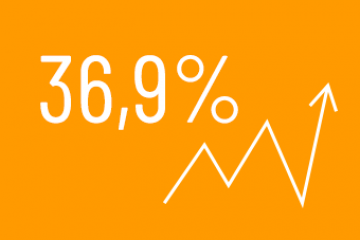Cryptocurrencies and Luxembourg unit-linked policies
The demand for holding cryptocurrencies (Bitcoin, Ethereum, Litecoin, Dogecoin, …) in a unit-linked insurance policy is increasing rapidly because everyone wants to own the "currency of the future".
Bitcoins and cryptocurrencies: how do they work ?
Strictly speaking, can we really consider Bitcoins as a currency? Cryptocurrencies are digital currencies designed to be faster-circulating and more secure than our normal government-issued currencies.
In what way are they more secure? To prevent fraud and manipulation, every cryptocurrency user can simultaneously record and verify his own and anyone else's transactions. Digital transaction records are known as a "ledger" and this ledger is publicly available to everyone. With this public ledger, transactions become efficient, permanent, secure and transparent.
While everything may seem perfect, cryptocurrencies are certainly not without their flaws and risks. These concerns stem from the fact that using the Bitcoin model (with its mechanism for encouraging computer owners to maintain and manage the public ledger) could encourage a politically disruptive concentration of computing power. Thus, while Bitcoins aim to decentralise monetary power, capitalism's inherent monopolising tendencies may encourage some users to accumulate sufficient computing power in order to take control of the network and overturn a reliable decentralised system.
Bitcoins are not currently under such a threat, which many believe would never arise since computer owners, who profit from this system, have no interest in destroying it. However, the threat cannot be eliminated completely.
The real threat comes from highly volatile prices, since price formation itself cannot be explained by standard economic theories because the fundamentals of supply and demand - which usually provide the basis for the price formation of a currency - are not present in the cryptocurrency market. First, they are not issued by a specific central bank or government and, therefore, are not linked to a real economy. Second, the supply and demand for cryptocurrencies is driven by speculative investor behaviour since there is no interest rate for digital currencies, and therefore profits can only be made from movements in the price. Cryptocurrencies are now part of a financial ecosystem which involves financial institutions, including traditional ones, but the regulatory system is not moving as fast as the surrounding environment linked to the cryptocurrency world.
Holding cryptocurrencies in a Luxembourg life insurance policy
The Commissariat Aux Assurances (the Luxembourg control authority), in its Circular Letter 19/02, amending Circular Letter 15/3 on the rules for investing in unit-linked life insurance products, has clarified its position on the holding of virtual currencies, making it clear that these are not currencies, and that these assets are not considered to be financial instruments. As a result, these assets are not accepted in collective internal funds or dedicated internal funds.
On the other hand, there are several alternatives which offer indirect exposure and, therefore, do not involve actually holding such units of account in a policy.
Every insurance company should carefully and prudentially analyse and classify these new portfolio “assets” in terms of value protection and risk minimisation and, ideally, would only offer exposure to such investments for higher category contracts (according to the classification of the Commissariat aux Assurances).
Today, the unit-linked life policy is a unique tool which combines tax and estate planning benefits with the flexibility and returns of a portfolio of financial assets. If we also add the diversification and inflation protection provided by an indirect investment in cryptocurrencies, we can all see that this is an interesting prospective investment for HNWIs and institutional investors.
Cryptocurrencies and their continuous improvements are putting a spotlight on this market and on the ‘smart contracts’ associated with some of them, and these - together with the methods for validating transactions - are just some of the aspects which are still the subject of much discussion. After all, we have now fully embraced what we once considered to be the future of payments.





























